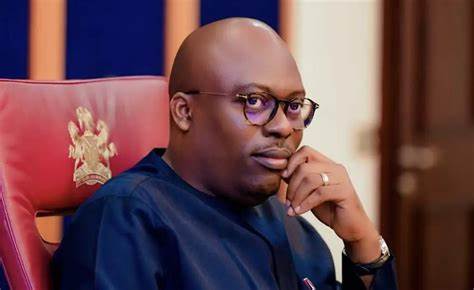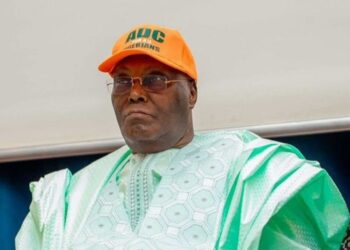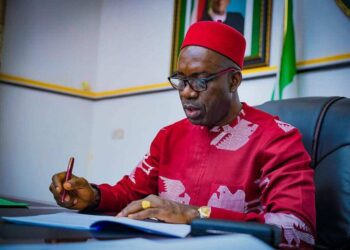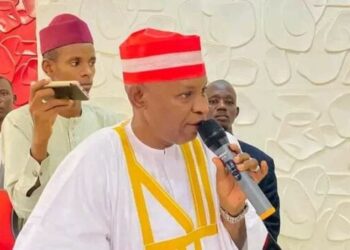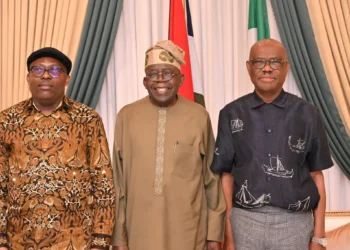President Bola Ahmed Tinubu has officially ended the six-month state of emergency imposed on Rivers State, allowing Governor Siminalayi Fubara and members of the State House of Assembly to resume their constitutional duties effective September 18, 2025.
In a statement released on Tuesday, September 17, 2025, President Tinubu announced that the emergency rule would cease at midnight, marking the end of an extraordinary federal intervention that suspended normal democratic governance in the oil-rich state.
The emergency declaration, originally proclaimed on March 18, 2025, was necessitated by what the President described as a complete paralysis of governance in Rivers State. According to Tinubu, the crisis stemmed from an irreconcilable conflict between Governor Fubara and the State House of Assembly, which had rendered effective administration impossible.
The President recalled that the constitutional impasse involved a severe division within the Rivers State House of Assembly, where only four members supported the Governor while 27 members opposed him and backed Speaker Martins Amaewhule. This division prevented Governor Fubara from presenting appropriation bills to the Assembly, effectively blocking access to funds necessary for running state affairs.
Beyond the legislative deadlock, President Tinubu cited additional security concerns that justified the emergency declaration, including vandalism of critical economic infrastructure such as oil pipelines. The deteriorating situation had prompted multiple court cases, with the Supreme Court ruling in one instance that there was effectively no government functioning in Rivers State.
The President emphasized that his administration had initially attempted diplomatic interventions alongside other well-meaning Nigerians to resolve the crisis peacefully. However, these efforts proved unsuccessful as both conflicting parties remained rigid in their positions, prioritizing their political interests over the peace and development of the state.
President Tinubu defended his decision to invoke Section 305 of the 1999 Constitution, arguing that the emergency declaration was constitutionally necessary to prevent Rivers State from descending into complete anarchy. The proclamation temporarily suspended the offices of the Governor, Deputy Governor, and elected members of the State House of Assembly for an initial six-month period.
The President acknowledged that his emergency declaration faced legal challenges, with over 40 court cases filed in Abuja, Port Harcourt, and Yenagoa seeking to invalidate the proclamation. While some cases remain pending, Tinubu maintained that the constitutional power to declare emergencies exists specifically to address situations involving actual or threatened breakdown of public order and safety.
According to the President, recent intelligence reports indicate a significant shift in the political atmosphere within Rivers State, with all stakeholders now demonstrating what he described as a new spirit of understanding and readiness for democratic governance. This positive development, he said, eliminated the need to extend the emergency beyond the original six-month timeline.
President Tinubu expressed satisfaction that the intervention has achieved its intended purpose of creating conditions for renewed cooperation between the executive and legislative branches of Rivers State government. He emphasized that harmonious relationships between these arms of government are essential for successful governance at both state and federal levels.
The President used the occasion to remind all state governors and houses of assembly across Nigeria that delivering democratic dividends to citizens requires maintaining peace, order, and good governance. He urged all state leaders to prioritize these principles in their daily operations and decision-making processes.
With the emergency rule officially ending, Governor Fubara will resume his executive responsibilities, while Deputy Governor Ngozi Nma Odu and Speaker Martins Amaewhule will return to their respective roles. The restoration of normal constitutional governance marks the end of federal administration of Rivers State affairs and returns political control to elected state officials.

